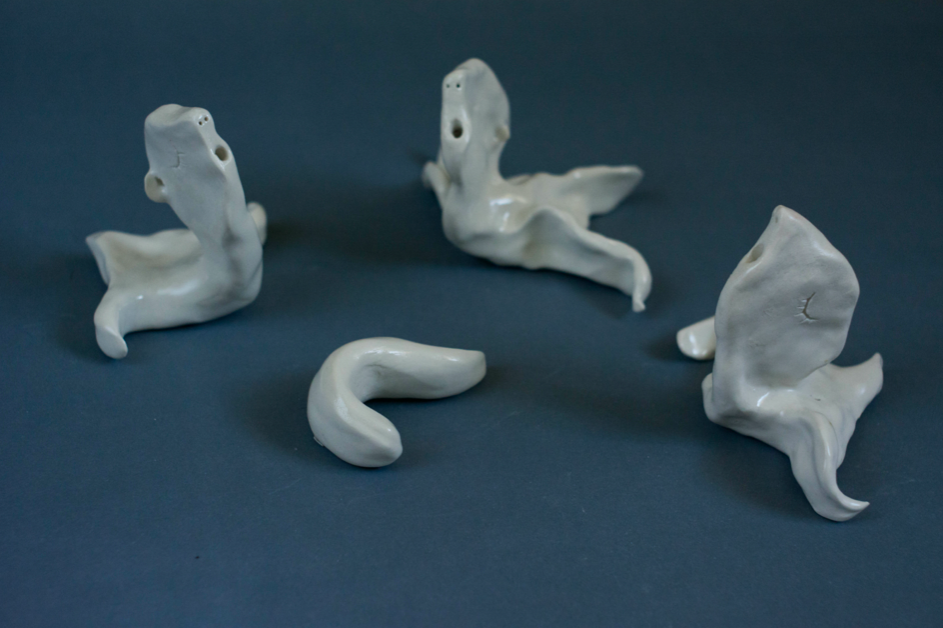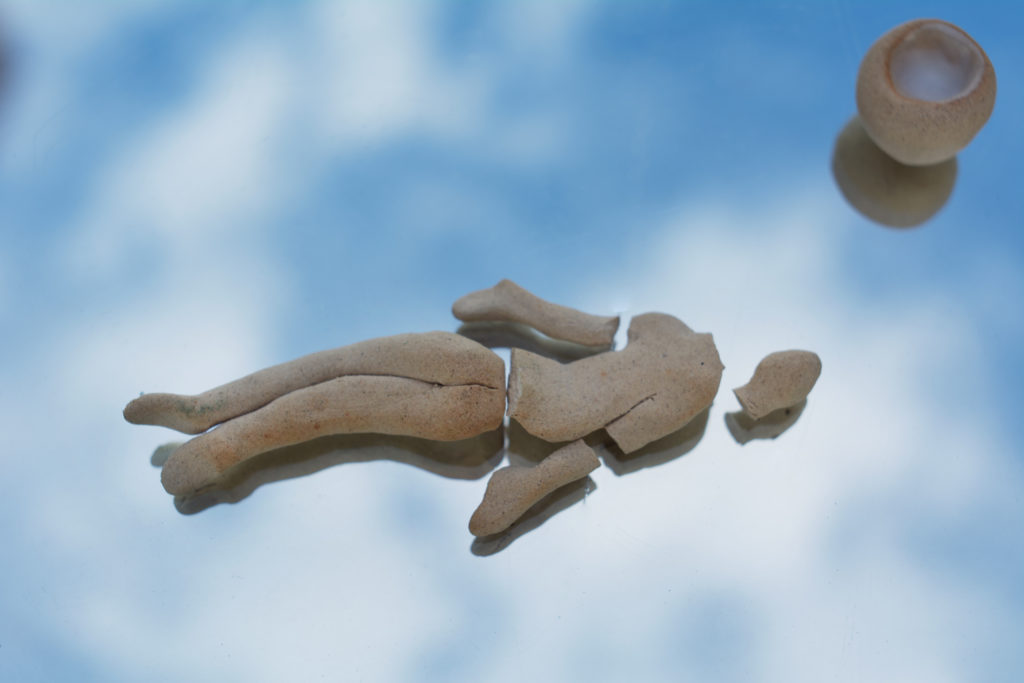when does / a door become / a door , as it opens / or when it closes , / revealing an entirety – its face / or a fixed movement / of its hinges , is that smiling / or saying goodbye , / moonlight / or memory.

Editor’s Note: The following poem by david hsu-tai lo 羅煦泰 is part of a notebook Queer Time, co-edited by Ta-wei Chi and Ariel Chu, which gathers contemporary queer Taiwanese literature in translation. To read the full Queer Time collection, visit its home here.
1.
Air conditioning does not
matter except
when it does , something cool
keeps you alive , here
where it is so hot , plastic turns yellow like teeth , rays gnaw
imitations of frosted glass – they peel jaundiced from heat : the frosted window film turning sunlight
into something
resembling moonlight
and moonlight into a memory – you used to live here
and occupy
the soft edges – border
between a heavy blanket
silkscreened with pink flowers
from abroad
into a sovereignty
that outlines your body , wrinkled skin – anyway
a body is not
what makes you , when does
a door become
a door , as it opens
or when it closes , revealing an entirety – its face
or a fixed movement
of its hinges , is that smiling
or saying goodbye , moonlight
or memory.
when you pack
into boxes , tidied ,
an attempt
moving past
each item , through a door
way , it finds
something cannot leave
without remaining , peeling
the plastic window
film taking
away , an unclearness
remains , glue having left
stuck to panes
how a smile remembers
its veneers , teeth
remember chewing , it is not enough
just to chew
or to remember , even keeping
insufficient – moving
and taking that plastic film
as if moonlight could
be held
and had .
2.
Slicing sashimi thick against the tongue. At what point
did your bed get lifted
from the tatami’d ground. Twenty millimeters present
histories of a current. Migrating its flesh , each piece
marked by a distance , a language .
Here , to eat is to return .
Eating always returns – reruns of that scene in goodbye , dragon inn where
a Japanese tourist is lost in the movie theatre . in the end, nothing is heard of him , the tourist remains wandering through the scenes .
the last piece of fish
having sat out too long begins
to smell
like a body – an odor
carrying its scent into the next room .
3.
soup ginseng’d in a lacquer bowl has no end . between ceramic and lacquer is another distance . because polishing and pushed into a glossiness is endless – where the form of a bowl finishes into a shadow . where the soup begins into its container , its vessel ends in the form of its contents – on a foggy day , mist blends into city smoked smog .
4.
there is no bottoming
out of a lacquer bowl , on sunday nights reflected in its contents puroresu – knee high boots flashing patent leather moving across a ring , cameras follow capturing footsteps that sound drums – when the war ends drumming happens as it did when it started , the last japanese soldier surrenders in 1974 . he was taiwanese . his name was attun . he did not hear the drums . instead puroresu reflected on ginseng’d soup keeps this alive . puroresu is not about theatrics – they say fighting is real – perseverance and spirit determine victory – a continuous pursuit glued and bound , held subject by its own receptacles – yet yielded , what resides when the soup is finished and gone , overhung , abandoned , an afterglow glut with remains .
Notes:
“moonlit:” In Taiwan, sashimi is sliced thick; although used as a marker for Taiwanese-ness, sashimi carries the residue of Japanese empire. Section 3 references Junichiro Tanizaki’s essay on Japanese aesthetics, “In Praise of Shadows.” Section 4 describes Japanese professional wrestling, puroresu, which differs from American wrestling in that the fighting is more “real.”



